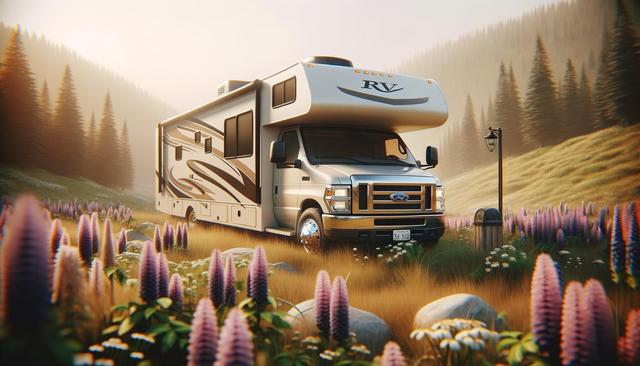Understanding the Appeal of RV Living
For many, the idea of buying an RV to live in represents freedom, flexibility, and a chance to downsize. Whether you’re looking to travel full-time or seeking a mobile alternative to traditional housing, RV living can offer a unique lifestyle. RV campers come in various types, from compact camper vans to spacious motorhomes, allowing buyers to find a model that suits their needs and budget. This lifestyle appeals to retirees, remote workers, and adventurous families alike, as it provides the opportunity to experience new locations without the hassle of hotel bookings or long-term leases.
Choosing to live in an RV also promotes minimalism and intentional living. With limited space, it’s easier to focus on what truly matters and eliminate excess belongings. However, transitioning to this lifestyle requires research and planning, especially when it comes to selecting the right vehicle and understanding the costs involved.
Where to Find the Right RV
When searching for the right vehicle, many wonder about the best place to buy a used RV. While dealerships often offer warranties and vehicle checks, private sellers might provide more affordable options. Online marketplaces, RV shows, and local classifieds are also popular avenues for finding pre-owned RVs. It’s crucial to inspect any used RV thoroughly and, if possible, hire a professional to assess its condition before making a purchase.
Here are a few tips when shopping for a used RV:
- Check for water damage, which is a common issue in older models.
- Inspect the tires, brakes, and engine if it’s a motorized unit.
- Ask for maintenance records and check for signs of wear and tear.
- Test all appliances and electrical systems.
Finding the best place to buy a used RV is about balancing cost, condition, and reliability. Whether you choose a dealership or a private seller, ensure that you feel confident in the purchase and understand all associated costs.
Financing Options for Every Buyer
One of the significant hurdles for many prospective RV owners is financing. If you’re concerned about your credit score, there are still options available. Many lenders now offer RV financing for bad credit, though terms may vary. It’s important to research different lenders and compare interest rates, down payment requirements, and loan lengths.
Some buyers look for dealers that specifically allow customers to buy an RV with poor credit. These institutions understand that not everyone has a perfect financial history and may offer more flexible terms. Keep in mind, however, that lower credit may mean higher interest rates or larger down payments.
To improve your chances of approval, consider the following:
- Save for a substantial down payment to reduce the loan amount.
- Improve your credit score before applying by paying down existing debts.
- Provide proof of steady income to show lenders you can manage monthly payments.
What to Consider Before Buying an RV to Live In
Buying an RV to live in is a significant decision that requires careful planning. Beyond the initial purchase and financing, you need to consider the practical aspects of full-time RV life. Space, connectivity, storage, and maintenance are all parts of daily living that change when your home is on wheels.
Key considerations include:
- How much space do you need? Solo travelers may be fine in a small camper, while families might require a larger fifth-wheel or motorhome.
- What are your travel habits? Frequent movers may prefer a more mobile setup, while stationary RVers might look for comfort and durability.
- Where will you park or live? Research campgrounds, RV parks, and legal boondocking spots in your desired areas.
Utilities like water, electricity, and sewage disposal also require planning. Many full-time RVers install solar panels or use generator systems to stay self-sufficient. The more prepared you are for these logistical aspects, the smoother your transition will be.
Long-Term Benefits and Challenges of RV Living
Living in an RV can be incredibly rewarding, but it’s not without its challenges. On the plus side, RV dwellers often report a greater sense of freedom, reduced living costs, and the chance to connect with nature more frequently. You also join a thriving community of fellow travelers who share tips, resources, and support.
However, the lifestyle requires ongoing maintenance, flexibility, and sometimes patience. Breakdowns, weather changes, and the constant need to plan your next stop can be stressful. Despite this, many find the benefits far outweigh the downsides. The simplicity and adventure of daily life on the road can be fulfilling in ways traditional living might not offer.
To thrive in this lifestyle, consider joining online forums or local RV groups. Connecting with others can provide valuable insights and make your journey more enjoyable. Whether you’re just starting to explore or ready to take the leap, the RV lifestyle can be a meaningful way to live on your terms.




Leave a Reply